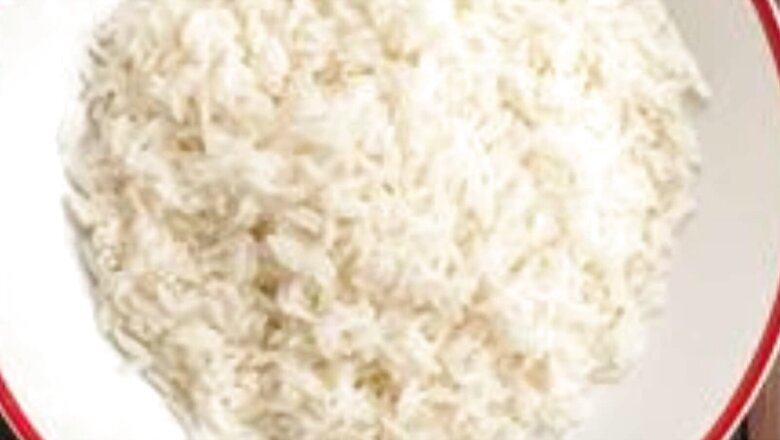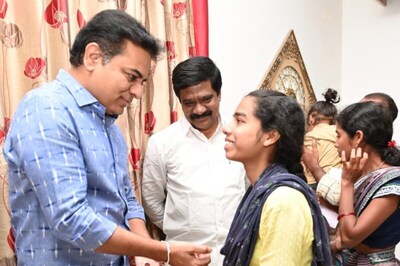
views
Weeks after banning wheat flour to control prices, the government has now imposed a ban on the exports of all forms of broken rice. This has become effective with immediate effect. The ban will halt the overseas shipment of around 4 million tonnes (MT) of rice.
“Export Policy of broken rice under HS code 1006 40 00 is amended from ‘Free’ to ‘Prohibited’. The Notification will come into effect from 9th of September, 2022. The provisions as under Para 1.05 of the Foreign Trade Policy 2015-2020 regarding transitional arrangement shall not be applicable under this Notification,” according to a notification by the Directorate General Foreign Trade (DGFT) released on Thursday (September 8). The DGFT is a commerce ministry arm that deals with export- and import-related matters.
The prices of rice in India in the past week have increased about 5 per cent as neighbouring Bangladesh has again cut import duty on rice from 25 per cent to 15.25 per cent. The reduction in import duty is expected to increase the rice demand from Bangladesh.
India, the world’s second largest rice producer after China, commands 40 per cen. Apart from high demand, this year, paddy also saw lower cultivation, which is also raising rice prices. The total area under paddy cultivation as on September 2 is lower by 5.6 per cent to 383.99 lakh hectares, compared with 406.89 lakh hectares last year.
Last year in 2021, India produced around 111 MT of rice in the kharif season.
According to the DGFT notification, during September 9-September 15, 2022, the consignments of broken rice to be allowed for export are i) where loading of broken rice on the ship has commenced before this Notification; ii) where the shipping bill is filed and vessels have already berthed or arrived and anchored in Indian ports and their rotation number has been allocated before this Notification; The approval of loading in such vessels will be issued only after confirmation by the concerned Port Authorities regarding anchoring/berthing of the ship for loading of broken rice prior to the Notification; and iii) where broken rice consignment has been handed over to the Customs before this Notification and is registered in their system.
“The Central Government, in exercise of powers conferred by Section 3 read with section 5 of the Foreign Trade (Development & Regulation) Act, 1992 (No. 22 of 1992), as amended, read with Para 1.02 and 2.01 of the Foreign Trade Policy, 2015-20, hereby amends the Export Policy of broken rice against ITC (HS) code 1006 40 00 of Chapter 10 of Schedule 2 of the ITC (HS) Export Policy,” the notification said.
Rice from Uttar Pradesh, Madhya Pradesh, Karnataka, West Bengal and Bihar are exported to Bangladesh, which imports sambha mansoori, sonam and kolam varieties of rice, according to the report. It also said that in the past one week, prices of these varieties have already increased by 3-4 per cent.
Recently, to control domestic prices, the Cabinet Committee on Economic Affairs (CCEA), chaired by Prime Minister Narendra Modi, recently approved the proposal to amend the policy of exemption for wheat or meslin flour. The move will now allow putting restrictions on the export of wheat flour, which will ensure a curb on rising prices of wheat flour in the country.
The increased demand for wheat flour in the international market led to a significant price rise of wheat flour in the domestic market.
Read all the Latest Business News and Breaking News here




















Comments
0 comment